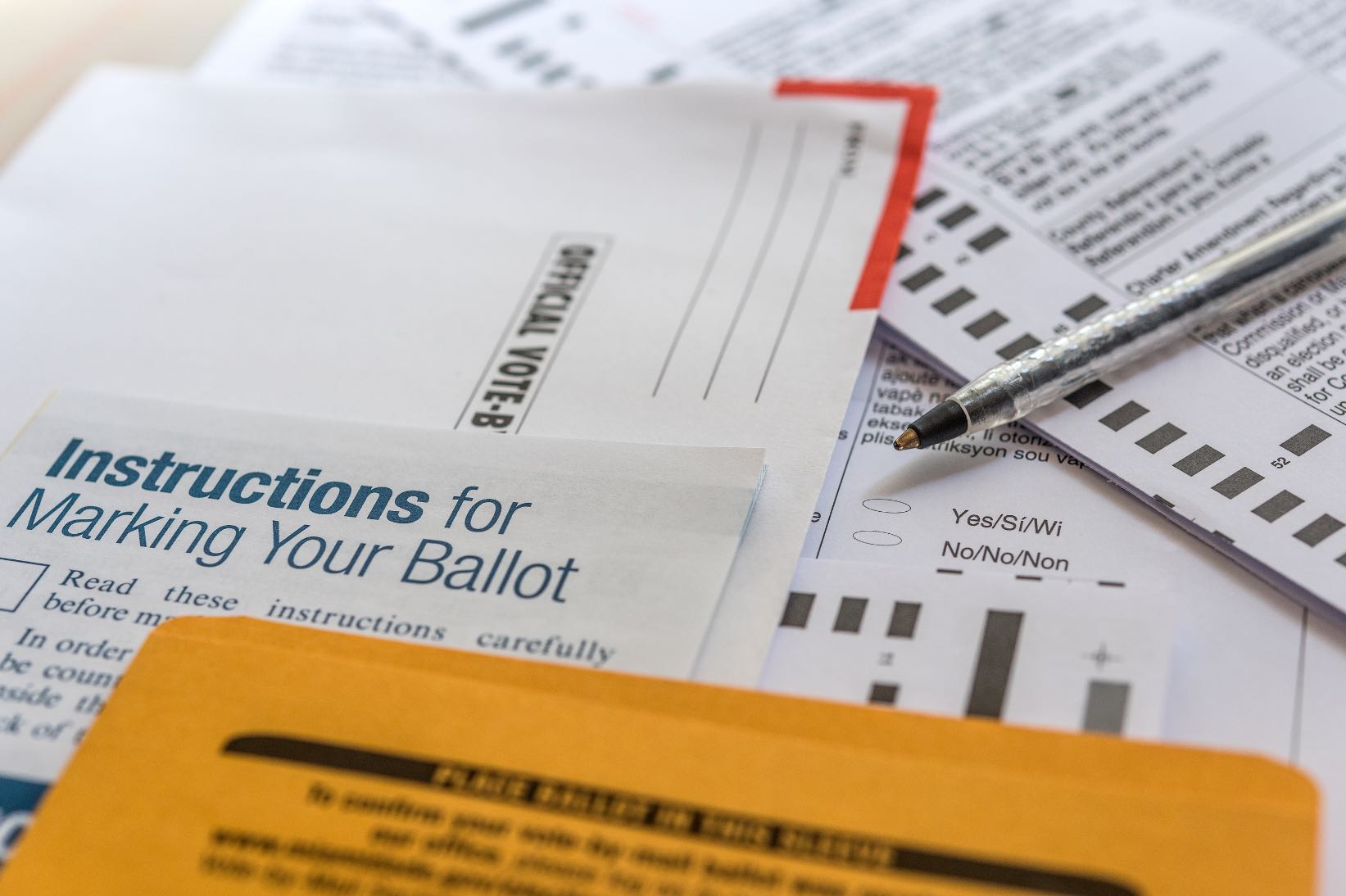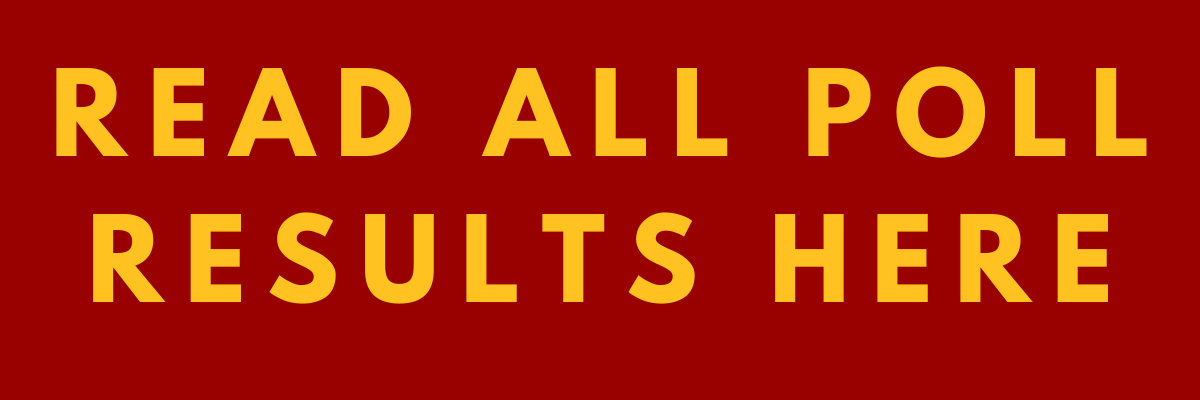USC Schwarzenegger Institute California Issues Poll
The USC Schwarzenegger Institute-USC Price California Issues Poll is a representative survey of registered voters who live in the state of California. It is a snapshot of California voters’ attitudes on the dates in which it was conducted. The poll is conducted by Dr. Christian Grose, Raquel Centeno, and the student participants in the USC Schwarzenegger Institute Democracy Lab. Students and colleagues at USC as part of the Democracy Lab designed and wrote questions for the poll, and developed, fielded, and implemented the poll. The survey was fielded from October 30 to November 2, 2022.
Questions and Media Inquiries:
Please contact Dr. Christian Grose at [email protected].
Key Poll Findings:
The most important issue for California voters right before the 2022 election is inflation/cost of living; followed close behind by homelessness; and the environment/climate. In an open-ended top- of-mind question, 15% of California voters said that inflation or the rising cost of living was the #1 issue in the state. Homelessness was the 2nd most important issue with 13% of voters rating it the top issue. 11% of California voters rated the environment/climate change as the most important issue facing the state. Other issues rated as the most important by Californians were crime (8%), affordable housing/housing (7%), the economy (7%), drought/water (4%), immigration (3%), taxes (3%), women’s health and abortion (3%), democracy (3%), and gas prices (3%). All other issues were mentioned by less than 1% of voters.
Telling voters about threats to election workers surprisingly encourages California voters to want to participate in the democratic process. In the last several months, there have been increasing threats and intimidation directed toward nonpartisan election administrators and poll workers. We asked California voters if they would be willing to step up and serve as a poll worker in the future. When California voters were told about threats to poll workers, 35% of voters said they wanted to sign up to become a poll worker to help administer elections in the future. Independent voters were particularly interested in signing up to be a poll worker (41% said they were willing to be a poll worker after learning of threats, higher than interest from both Democrats and Republicans). While the threats to election workers are alarming, such messages of alarm rally California voters to want to participate more.
Governor Gavin Newsom is poised to win the California governor’s race resoundingly. Governor Gavin Newsom is polling 62% and Republican Brian Dahle is polling at 38%. This is similar to the vote margin in the recent recall election. For the governor’s race, as well as other statewide elections, the poll gave voters the names of candidates and their occupations and party affiliations exactly as displayed on California voters’ ballots.1 This method is more accurate than other methods that only ask names without other identifying information in polls.
Senator Alex Padilla is likely to win easily over his opponent in the U.S. Senate election. Padilla is the choice of 63% of California voters in the poll, while his opponent Mark Meuser received 37%.
Democrats perform well in other statewide election contests. In most other statewide races, Democratic candidates Eleni Kounalakis (Lt. Governor), Shirley Weber (Secretary of State), Fiona Ma (Treasurer), Rob Bonta (Attorney General), and Ricardo Lara (Insurance Commissioner) are polling at numbers that indicate relatively easy victories on Election Day. There is a significant partisan divide with most Democratic voters supporting these candidates and most Republicans supporting their opponents.
Republican Lanhee Chen is the most competitive Republican candidate on this year’s ballot for statewide office, though Democrat Malia Cohen is beating him in the race for Controller. In the open seat for Controller, Malia Cohen is preferred by more voters than Lanhee Chen (58% Cohen to 42% Chen). However, this is the most electorally competitive statewide election as Chen is drawing more support from independent voters (56% for Chen) and Asian American voters (62% for Chen) than most other Republicans in other statewide elections. Cohen is winning large majorities of voters who are Democrat. She is also receiving more support from women voters (65% for Cohen) and Latino voters (63% for Cohen).
The generic congressional ballot question favors Democrats in California. 63% of voters in California, when asked if they will vote for the Democrat or Republican in congressional elections, choose the Democrat; and 37% choose the Republican. This is a statewide result.
A majority of California voters oppose the proposed policy to open supervised drug-use injection site pilot programs in the cities of Los Angeles, Oakland, and San Francisco. The state legislature recently passed this bill and the governor vetoed it. 54% of California voters disapprove of the supervised drug-use injection sites (42% strongly disapprove and 12% slightly disapprove). Only 17% of California registered voters strongly approve of this policy and 19% slightly approve (total approve: 36%).
A slight majority of voters approve of the recent decision to ban the sale of new gasoline powered cars by 2035. In total, 52% of voters approve and 43% disapprove with 32% strongly approving, 20% slightly approving, 8% slightly disapproving, and 35% strongly disapproving. There is a divide by income with those making more than $100,000 a year being the least favorable toward this policy (34% strongly approve, 36% strongly disapprove).
A significant majority of voters favor the Contraceptive Equity Act of 2022 that was recently passed by the state legislature and signed by the Governor. This law requires insurers to cover male sterilization and nonprescription birth control. 51% of voters strongly approve of this policy, and 20% strongly disapprove. There was a significant difference by gender: 61% of women strongly approve and 14% of women slightly approve of this policy; and 42% of men strongly approve and 18% of men slightly approve.
California voters approve of other policies regarding environmental regulation in the San Joaquin Valley and kindergarten education. These two policies were recently passed by the legislature but ultimately vetoed by the governor. A majority of California voters approve of the policy that would require the California Air Resources Board (CARB) to assert control over the San Joaquin Valley Air Pollution Control District (57% approve in total: 28% strongly approve; 29% slightly approve). California registered voters also support SB70, which would require children to attend kindergarten before attending first grade (60% approve either strongly or slightly). Among racial and ethnic groups, Latino voters were most likely to support the kindergarten policy with 43% of Latino voters strongly approving of this policy and 23% slightly approving.
California voters are largely divided on the regulation of free speech on social media. While 22% of voters said that social media platforms have been balanced in their approach to free speech, the rest are evenly divided on whether social media companies are too strict (39%) or not strict enough (39%) in regulating speech on their platforms. There are gendered differences in attitudes as 47% of men said companies are too strict in their regulations while 44% of women said they are not strict enough. California voters were also divided in their approval of Elon Musk purchasing Twitter (32% strongly approve; 33% strongly disapprove).
On federal election law matters, California voters do not want to see the U.S. Supreme Court overturn Section 2 of the Voting Rights Act. California voters do not want to see the U.S. Supreme Court strike down a part of the Voting Rights Act in Merrill v. Milligan (64% prefer that the U.S. Supreme Court uphold Section 2 of the Voting Rights Act). California voters also would like to see state- level voting rights protections for voters of color that are similar to current federal regulations. A majority (54%) of California voters would support a state-level attempt to create new voting rights rules for redistricting if the U.S. Supreme Court overturns Section 2 of the Voting Rights Act. 22% would not support such a state policy, and the rest are not sure (23%).
California voters do not want the U.S. Supreme Court to support the “independent state legislature theory” of elections and overturn the state’s election procedures. California voters oppose the independent state legislature theory that might change how the state conducts its congressional redistricting and runs its elections. This is being taken up by the U.S. Supreme Court in Moore v. Harper. 73% of California voters want the U.S. Supreme Court to keep the current election rules in place so California voters and citizen commissions can make decisions about elections, while few California voters hope the Court overturns the rules under the independent state legislature theory.
Ballot propositions headed toward passage? Proposition 1/reproductive freedom and Proposition 28/arts and music education. Proposition 1, the Constitutional Right to Reproductive Freedom, enjoys wide support among California voters. After reading the text of the ballot, 68% of voters say they will vote yes and 32% say they will vote no. Both Democratic and Republican voters appear to favor Prop 1 with Democratic voters more supportive. Proposition 28, a ballot proposition to give additional funding to arts and music education in public schools also enjoys wide support with 69% supporting and 31% opposing in the poll.
Ballot propositions headed toward defeat? Both ballot propositions that deal with gaming are opposed by a majority of California voters. When voters are required to choose whether they will vote yes or no, majorities of voters oppose Prop 26 to allow in-person roulette, dice games, and sports wagering on tribal lands. A large majority of California voters also oppose Prop 27 to allow online and mobile sports wagering outside tribal lands. Women are more likely to oppose both Prop 26 and Prop 27 than are men.
Voters are split on Prop 30 (funding for air pollution/higher taxes), and statistically this is an unpredictable tie going into Election Day. The other ballot proposition included in the California Issues Poll was Prop 30, which seeks to provide funding for programs to reduce air pollution and prevent wildfires by increasing tax on personal income over $2 million. 53% of voters in the poll support this ballot proposition, and 47% oppose the ballot proposition. This is well within the margin of error given that some voters skipped this question on the poll (as some may also choose to do on Election Day).
Survey Methodology and Details:
A representative polling sample of 802 registered California voters was randomly drawn off the voter file and surveyed. The survey questionnaire was designed by faculty and students at the University of Southern California. The survey was fielded using Qualtrics software, though we relied upon the voter file from which to draw our respondents who participated in the survey. The USC Schwarzenegger Institute-USC Price California Issues Poll uses post-stratification weighting for age, gender, ethnicity/race, and party registration. Survey weights were estimated using the “anesrake” package in the statistical program R. The anesrake statistical package uses the weighting algorithm that was developed by Dr. Josh Pasek. This algorithm uses an iterative and multiplicative raking model to generate individual weights for each respondent; and these weights are then used to ensure the sample is representative of the California electorate. Because we are interested in measuring all California voters’ issue and policy attitudes, the baseline universe of interest is the population of California registered voters. Respondents were given the choice of ‘don’t know’ unless the cross-tabular results below do not show ‘don’t know’ as an option. For vote choice questions, given the nature of the top-two general election, voters were only given the option to select 2 candidates and were not given a ‘don’t know’ option. Similarly, for the ballot proposition questions, ‘don’t know’ was not an option but respondents could skip the question. Because the universe of interest is weighted to the registered voter population, differences in turnout within subgroups in 2022 may lead the actual results to differ from the snapshot-in- time results presented here. In the topline results and cross-tabs, totals may not sum to 100 due to rounding. The margin of error is +/-3.5 %-points.


